What is QuantumFrontiers?
Are you interested in how to push the bounds of what is possible to measure in nature? How precise can you observe climate change, black holes or the flow of time? Within QuantumFrontiers we develop quantum devices to monitor our water resources from space, detect gravitational waves and explore which clock can achieve the best accuracy. We exploit hand-in-hand nano-engineering and quantum physics to increase the sensitivity of measurements to improve our fundamental understanding of nature.
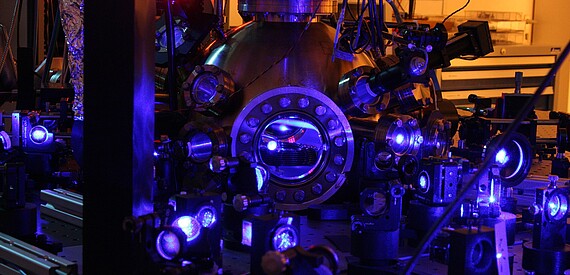
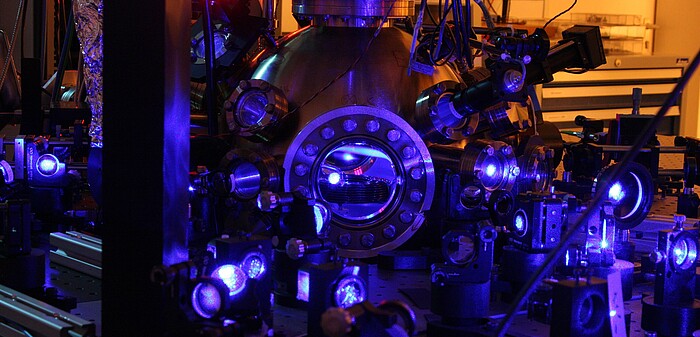
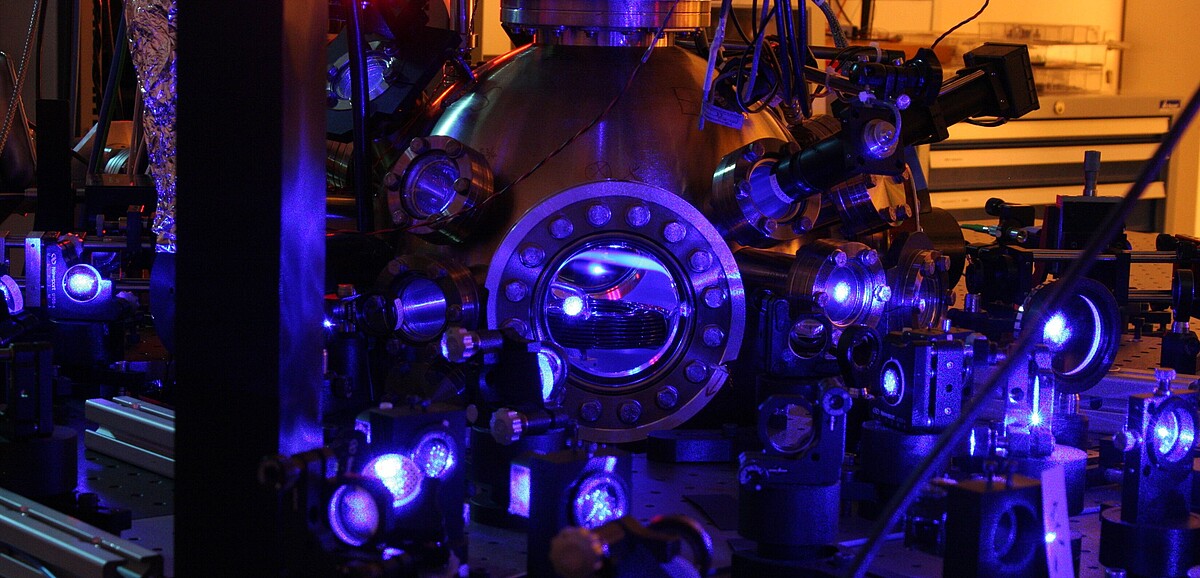 ©
Christian Lisdat/PTB
©
Christian Lisdat/PTB
Is it possible to generate and detect noise-free single electron or single photon sources and can we validate such sources for use in high-accuracy current sources and quantum cryptography? Can we perform precise microscopy on the nanoscale to enable new insights for a multitude of scientific disciplines? These questions and many more are what drive the QuantumFrontiers’ research program. We invite you to learn more about the research being done to advance the foundation of metrology by exploring light and matter and the applications in metrology at the quantum frontier of the smallest and largest scales.
Who is QuantumFrontiers?
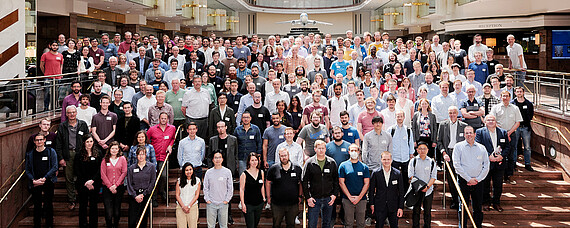
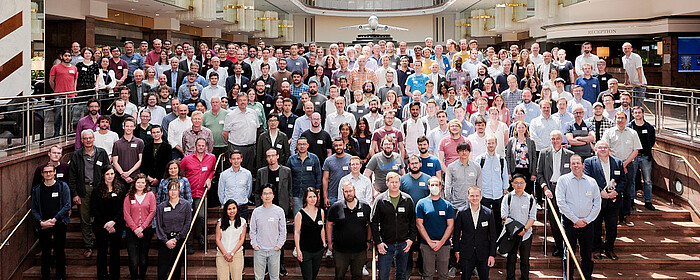
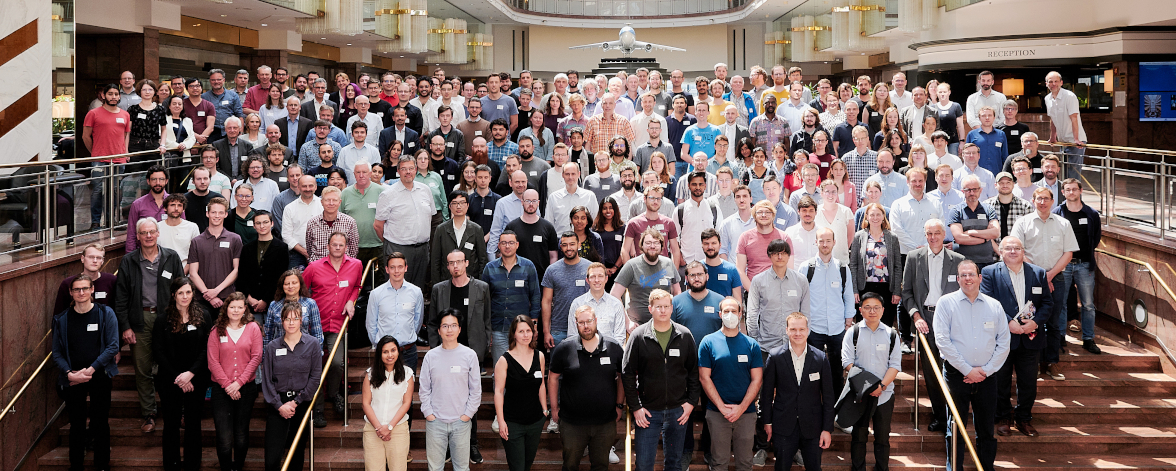 ©
Sören Pinsdorf
©
Sören Pinsdorf
The success of QuantumFrontiers is built on the excellence and long-standing collaboration of the people and institutions comprising the DFG-funded Cluster of Excellence on core competences: Leibniz Universität Hannover (LUH), TU Braunschweig, Physikalisch-Technische Bundesanstalt (PTB), Max Planck Institute for Gravitional Physics (AEI), Laser Zentrum Hannover e.V. (LZH) and Center of Applied Space Technology and Microgravity (ZARM). This combination of expertise and infrastructure contributed by the diverse partners is not found anywhere else in the world.
The QuantumFrontiers cluster is reinforced by local strategic networks between the institutions (QUANOMET, MIB, QUEST), as well as numerous partnerships with research networks active in Germany and internationally.
Cooperative Research
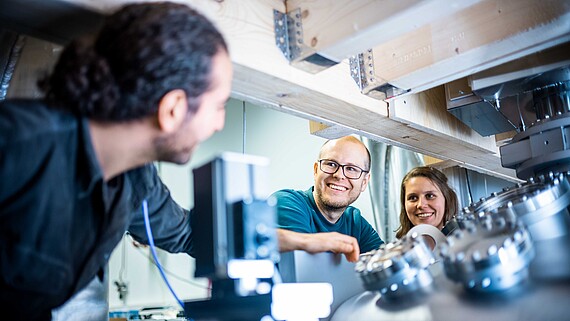
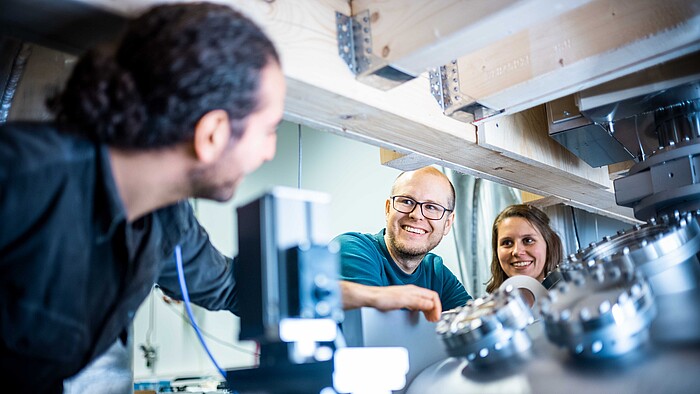
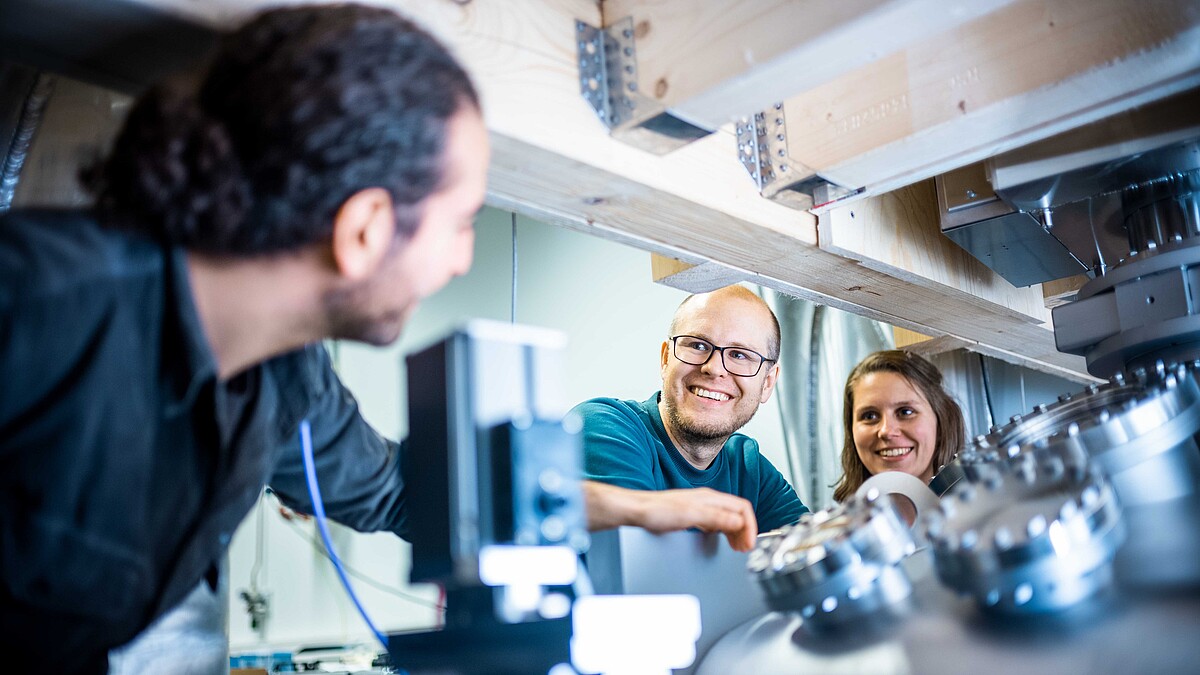 ©
Jan Hosan/QuantumFrontiers
©
Jan Hosan/QuantumFrontiers
Via QuantumFrontiers a powerful research network has been established in the form of Topical Groups that can dynamically drive new science collaborations and activities as the fundamental research questions evolve. They are led by the Science Board, consisiting of research scientists at various stages of the academic career ladder ensuring that the QuantumFrontiers’ research program is led like a cooperative, by the diverse cluster members. Beyond the regional network, QuantumFrontiers researchers strive to share their science with society.
Sharing Science
QuantumFrontiers mission is to push the boundaries of knowledge at the largest and smallest dimensions. This is relevant not only to the research program, but also to the support programs that ensure contact and exchange of knowledge and technology with all facets of society. We call this “Sharing Science”. QuantumFrontiers’ commitment to sharing science in the form of knowledge transfer includes our activities, where we open our facilities for pupils (foeXlabs), meet with high school classes in their classrooms via MasterClasses, and offer a Master’s degree based on industrial requests for quantum engineers. Our most effective vehicles for knowledge transfer are ultimately our PhDs and Postdocs, educated in the QuantumFrontiers International Research School (QFIRS) to connect their research with society.
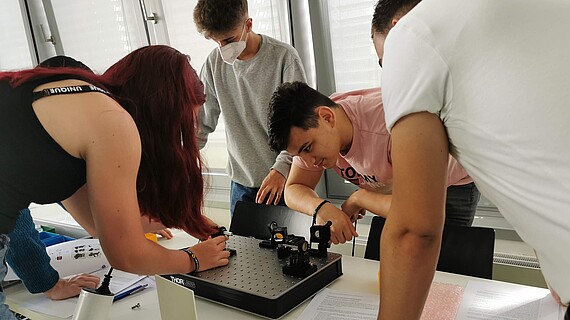
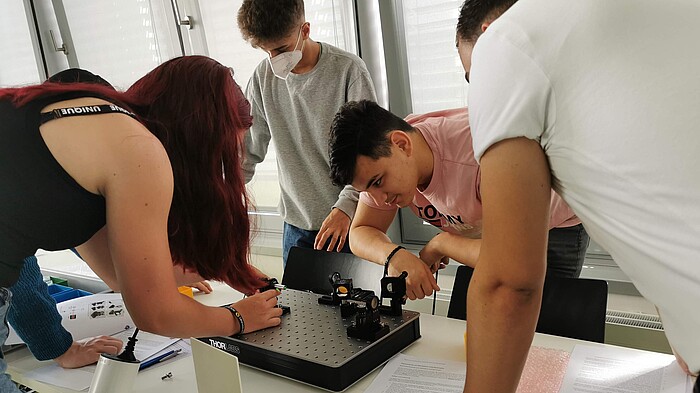
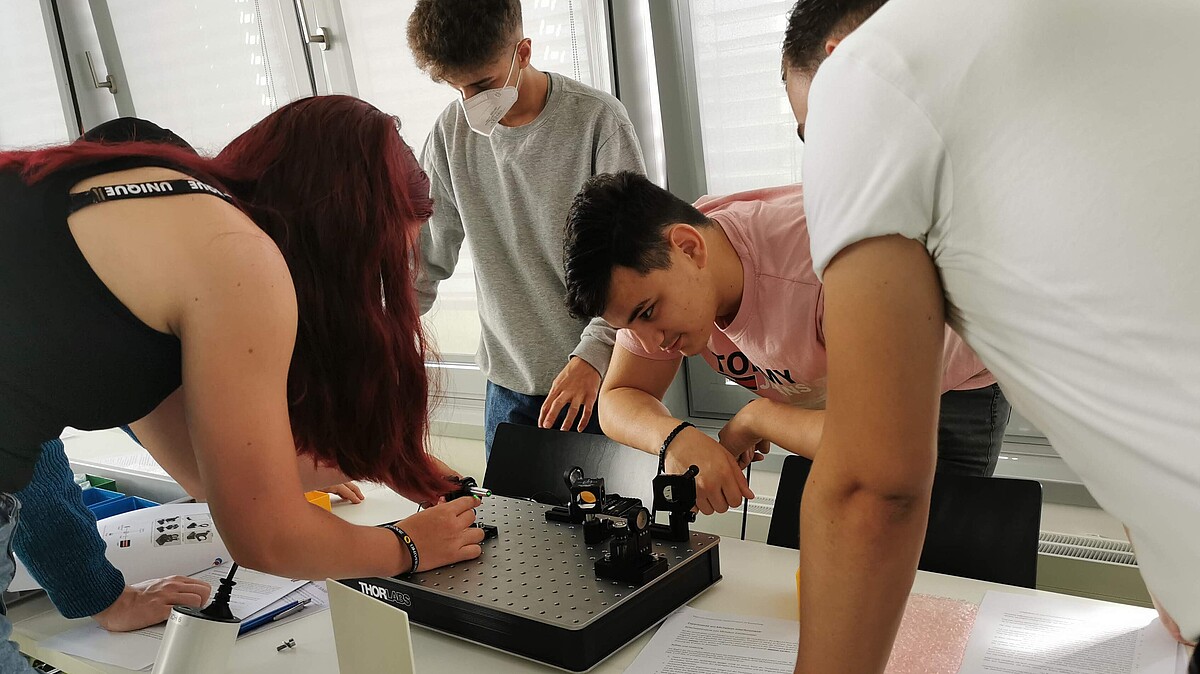 ©
MasterClasses/QuantumFrontiers
©
MasterClasses/QuantumFrontiers
QuantumFrontiers’ commitment to Sharing Science also includes working across disciplines to stimulate a cross-cultivation of ideas and solutions to relevant societal challenges, for example improving equal opportunity and diversity in the MINT (STEM) fields. QuantumFrontiers’ cooperates with the Institute for Sociology at LUH on a project to “break down gender- and family-specific barriers”.
QuantumFrontiers’ commitment to sharing science in the form of technology transfer from the lab to market is realized by a program for igniting entrepreneurship among the early career scientists, namely a Quantum Entrepreneurial Excellence Program (QuEEP).
QuantumFrontiers researchers are engaged in technology transfer via support for Quantum Valley Lower Saxony (QVLS) initiatives like a project to build a 50-qubit ion-based quantum computer (QVLS-Q1), the High-Tech Incubator (QVLS-HTI) and the Clusters4Future Integration Labs (QVLS-iLabs), where we link our research strengths with industrial demands.






